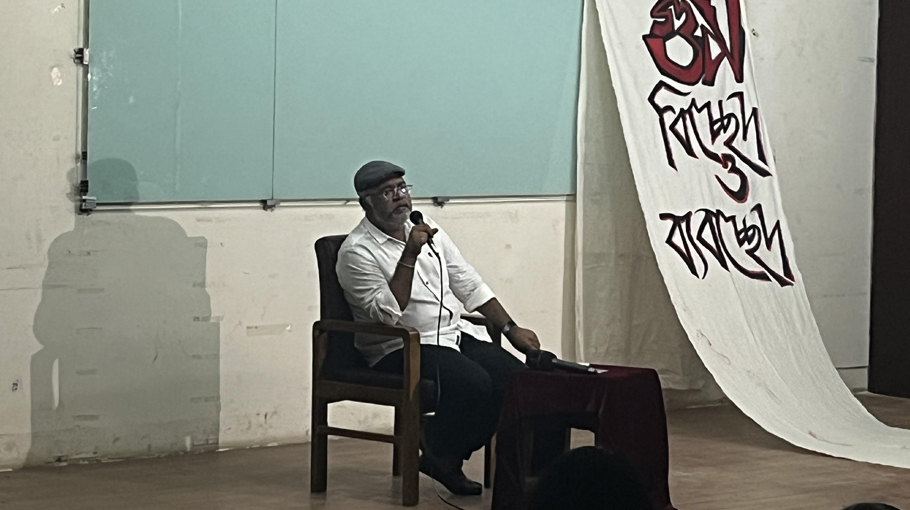Rights activists, victims call for preserving ‘Aynaghor’ as museum

Rights activists, researchers and victims of forced disappearance have called for preserving secret jails dubbed as "Aynaghor" and run by different law enforcement or intelligence agencies as museums as proofs of ousted government's crimes.
"So far, we have information of at least 13 such secret jails which were run by different agencies," said researcher and rights activist Rezaur Rahman Lenin at a discussion at RC Majumdar Auditorium of Dhaka University last night (August 29).
Lenin along with other speakers suggested the secret jails be preserved as proof of the crimes of the ousted government, its ministers and leading figures to let people know the actual stories of their heinous acts.
"Rodh", a youth platform that uses paintings and other artworks for campaign against fascism, staged the discussion titled "Enforced Disappearances: Separation and Dissection".
Researcher and writer Sohul Ahmed said the incidents of forced disappearances or killings in the name of "encounter" took place during every regime but after 2010, the then government carried out such heinous acts in an intensive manner using the Digital Security Act in a very systematic way to suppress opposition voices.
"The previous government tried to legitimise the crossfire and extrajudicial killings with almost identical press notes, but no one talked about enforced disappearance," he said.
Ahmed said from 2010 to 2024, at least 703 people were victims of forced disappearance and till date 153 remained untraced.
"There have been allegations against all the nine intelligence agencies of the country. They all need to be exposed to justice,"
he said.
Lenin, meanwhile, accused the Law commission, Anti-Corruption Commission and Human Rights Commission of failure to take any visible step against the enforced disappearance or encounters that took place in the last 53 years.
He said the interim government formed a five-member commission to investigate such incidents in the past 15 years but authorities should have consulted with stakeholders ahead of taking the decision.
Coordinator of Mayer Daak Sanjida Islam Tulee, Journalist of French news agency AFP Mohammad Ali Majed, and anthropologist and documentary photographer Moshfiqur Rahman Johan also addressed the discussion.
Artist and writer Debashish Chakrabarty, art critic Razib Datta, artist and writer Debashish Chakrabarty, and artistic Researcher Faysal Zaman, were among those who attended the discussion.




